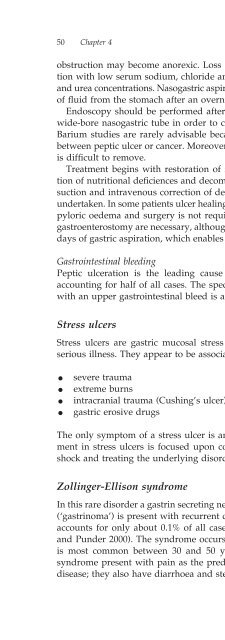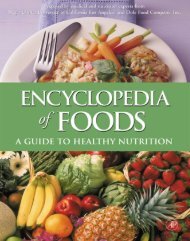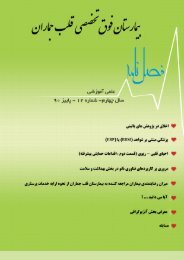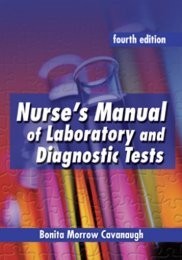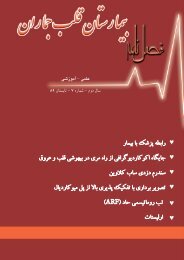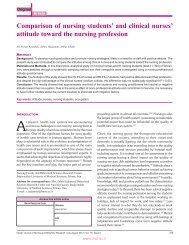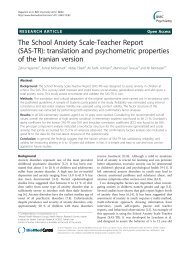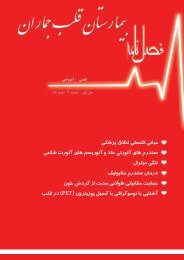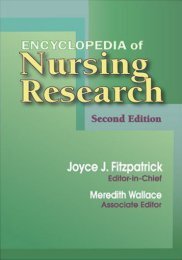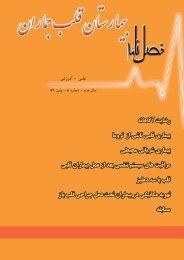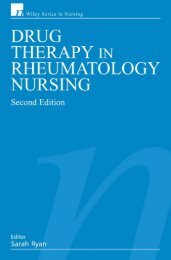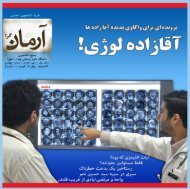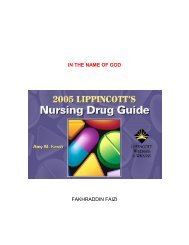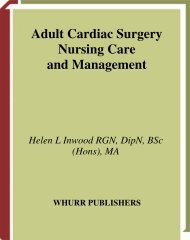Gastrointestinal Nursing.pdf
Gastrointestinal Nursing.pdf
Gastrointestinal Nursing.pdf
Create successful ePaper yourself
Turn your PDF publications into a flip-book with our unique Google optimized e-Paper software.
50 Chapter 4obstruction may become anorexic. Loss of gastric contents leads to dehydrationwith low serum sodium, chloride and potassium, and raised bicarbonateand urea concentrations. Nasogastric aspiration of food residue or at least 200 mlof fluid from the stomach after an overnight fast suggests the diagnosis.Endoscopy should be performed after the stomach has been emptied by awide-bore nasogastric tube in order to confirm or refute organic obstruction.Barium studies are rarely advisable because they cannot usually distinguishbetween peptic ulcer or cancer. Moreover, barium remains in the stomach andis difficult to remove.Treatment begins with restoration of fluid and electrolyte balance, correctionof nutritional deficiences and decompression of the stomach. Nasogastricsuction and intravenous correction of dehydration and metabolic acidosis areundertaken. In some patients ulcer healing with proton pump inhibitors relievespyloric oedema and surgery is not required. In other patients vagotomy andgastroenterostomy are necessary, although they are best carried out after sevendays of gastric aspiration, which enables the stomach to return to normal size.<strong>Gastrointestinal</strong> bleedingPeptic ulceration is the leading cause of upper gastrointestinal bleeding,accounting for half of all cases. The specific nursing management of patientswith an upper gastrointestinal bleed is addressed in Chapter 11.Stress ulcersStress ulcers are gastric mucosal stress erosions that are associated with aserious illness. They appear to be associated with the following situations:• severe trauma• extreme burns• intracranial trauma (Cushing’s ulcer)• gastric erosive drugsThe only symptom of a stress ulcer is an upper gastrointestinal bleed. Treatmentin stress ulcers is focused upon control of the bleeding, correcting theshock and treating the underlying disorder.Zollinger-Ellison syndromeIn this rare disorder a gastrin secreting neuroendocrine tumour of the pancreas(‘gastrinoma’) is present with recurrent duodenal ulceration and diarrhoea. Itaccounts for only about 0.1% of all cases of duodenal ulceration (Misiewiczand Punder 2000). The syndrome occurs in either sex at any age, although itis most common between 30 and 50 years. Patients with Zollinger-Ellisonsyndrome present with pain as the predominant symptom from peptic ulcerdisease; they also have diarrhoea and steatorrhoea.


